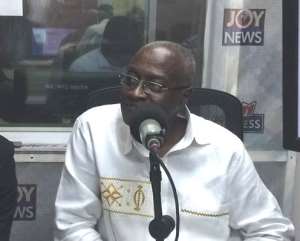
The 2019 budget must spell out the strategy to address the cedi’s depreciation, otherwise, the banks’ recapitalisation exercise will eventually become pointless, Dr Richmond Akwasi Atuahene – a banking analyst – has said.
“For the banks, they will be interested in the stability of the currency. Over the past decade, the cedi has depreciated by 233 per cent. In December 2009, it was GH¢1.43 to $1; today it is close to GH¢5. So, there is a correlation between the banks’ capitalisation and depreciation of the currency.
So, the point we are making is that to make the banks viable, the government should tell us what strategy it is putting in place to address the local currency’s persistent depreciation. The government must come out with short-term, medium-term and long-term approaches to addressing the situation,” he told the B&FT in an interview.
The Bank of Ghana has set a deadline of December 31, 2018, for commercial banks in the country to raise their minimum capital to GH¢400million; an amount some banks are struggling to raise.
According to Dr Atuahene, if the government does not immediately employ a long-term solution to address the currency’s depreciation, banks’ capital will shrink – thereby creating the need for another recapitalisation programme in the not-too-distant future.
“Until we have enough foreign currency, the cedi will not be stable. And once the cedi is not stable, it makes capital of the banks lose its value – because, once there is a persistent depreciation, you destroy the currency. So, there is a need for us to have a stable currency to support the banks’ capital.
“If the currency issue is not addressed, in three or four years’ time the banks' recapitalisation will be rendered useless. There is a lot of empirical literature to back this. Any country that does not have a stable currency will always ask for recapitalisation, but in less than no time it devalues – making the capitalisation useless,” he said.
He further stated that one main strategy to make the currency stable is to have an export-driven economy; something he says the country has a competitive advantage over, given its abundant natural resources which can be processed and exported.
The banking industry, however, is not the only sector suffering from the effects of cedi depreciation. The Ghana Union of Traders Associations (GUTA) has also expressed worry about the weakening local currency, as it argues its members have seen their capital and gains shrink in the past few months.
The Finance Minister, Ken Ofori-Atta, will present the 2019 budget on November 15, 2018. He has hinted that the budget will provide information on the issuance of a $50billion century bond, which he believes will eventually stabilise the cedi and possibly strengthen it.




 This IMANI job no dey pap; the people you are fighting for are always fighting y...
This IMANI job no dey pap; the people you are fighting for are always fighting y...
 Prof. Naana Opoku-Agyemang has changed; you can see a certain sense of urgency –...
Prof. Naana Opoku-Agyemang has changed; you can see a certain sense of urgency –...
 MFWA Executive Director slams Akoma FM for engaging in ‘irresponsible’ media pra...
MFWA Executive Director slams Akoma FM for engaging in ‘irresponsible’ media pra...
 ‘Women must become millionaires too’ — Prof Jane Naana on establishment of Women...
‘Women must become millionaires too’ — Prof Jane Naana on establishment of Women...
 Some believe only in Ghanaian votes, not Ghana — Kofi Asare jabs politicians
Some believe only in Ghanaian votes, not Ghana — Kofi Asare jabs politicians
 Plan to make BEST sole aggregator of Sentuo Oil Refinery will create market chal...
Plan to make BEST sole aggregator of Sentuo Oil Refinery will create market chal...
 2024 elections: I can't have the man I removed from office as my successor — Aku...
2024 elections: I can't have the man I removed from office as my successor — Aku...
 2024 Elections: Immediate-past NPP Germany Branch Chairman garners massive votes...
2024 Elections: Immediate-past NPP Germany Branch Chairman garners massive votes...
 Gov’t focused on making Ghana energy self-sufficient, eco-friendly – Akufo-Addo
Gov’t focused on making Ghana energy self-sufficient, eco-friendly – Akufo-Addo
 April 25: Cedi sells at GHS13.74 to $1, GHS13.14 on BoG interbank
April 25: Cedi sells at GHS13.74 to $1, GHS13.14 on BoG interbank
